The UK hydrogen industry is gearing up for a “critical period” heading into 2024 as the nascent sector strives to prove its viability in the face of international competition.
Long touted as a promising source of clean energy, the hydrogen sector has struggled to bring down its costs enough to entice large-scale industrial emitters to switch away from cheaper fossil fuel options.
Meanwhile, electrification options have progressed rapidly and are increasingly being seen as more attractive options for vehicles and home heating.
But with the UK carbon capture, utilisation and storage (CCUS) market starting to take shape and renewable energy capacity rapidly expanding, both key ingredients for blue and green hydrogen production, could 2024 be the year hydrogen finally wins over its critics and cements its position as a key component of the net zero transition?
US and EU lay down challenge
In the last two years, both the United States and the European Union have outlined bold plans to kickstart their hydrogen industries.
US President Joe Biden started things off in 2022, allocating approximately $750 billion (£590bn) in spending and tax incentives to support green energy initiatives through the Inflation Reduction Act (IRA).
Included among measures designed to boost renewables including wind, solar and geothermal production were a range of tax credits for clean hydrogen production.
The scale of the IRA spending, in part meant to entice global players back to US shores, led to accusations of ‘protectionism’ from UK ministers.
Meanwhile, the EU unveiled its REPowerEU scheme which included €800 million (£700m) in funding for a European Hydrogen Bank.
UK green hydrogen response
In mid-December, the UK government announced a comparatively modest £2 billion investment across 11 green hydrogen schemes in its first Hydrogen Allocation Round (HAR-1).
The Department for Energy Security and Net Zero said the move would help create over 125MW of capacity and 700 jobs from the south-west of England to the Highlands, supporting a “world-leading hydrogen industry”.
In return, developers will also commit to invest over £400 million in projects over the next three years.
The UK government also unveiled a hydrogen production delivery roadmap, outlining the pathway for the industry through to 2035, and other policy updates including a decision to support up to 20% hydrogen blending into the national gas network.
Hydrogen funding was also included in measures announced earlier in the year as part of Chancellor Jeremy Hunt’s Autumn Statement, which allocated £960m in funding for a green industries growth accelerator (GIGA) plan.
2023 saw “big movements” in policy
Speaking to Energy Voice, Hydrogen UK chief executive officer Clare Jackson said the sector had seen “big movements” forward in legislative and policy measures in 2023.
Ms Jackson said the range of announcements, including the GIGA and HAR-1 allocation, had been “hugely significant” step in the direction of “ensuring the UK is a global hydrogen superpower”.
But achieving that status is not guaranteed, Ms Jackson said.
“We’re in a really critical period and the decisions that are made both by industry and government over the next 12 months will set the trajectory for the hydrogen industry for the next decade,” she said.
“We are cautiously optimistic that the UK can emerge as a global leader and that hydrogen can play the role that we know it needs to play in order to meet net zero.
“But it all hinges on decisions that are made [in 2024].”
Hydrogen Allocation Round
Westwood director of hydrogen Joyce Grigorey told Energy Voice the HAR-1 funding had been the biggest movement in the UK market in 2023.
Ms Grigorey said the winners of HAR-1 funding now had the certainty they needed to get their projects up and running.
“I actually think that this year, not just for the UK but for Europe as well, will be the year where we will see more projects start to get off the ground,” Ms Grigorey said.
“This is going to be the year where people start actually moving on things because they’ve gotten the certainty.”
2024 will see an even larger HAR-2 allocate funding to hydrogen projects across an increased 750MW total capacity.
Ms Grigorey said the hydrogen market needs to see projects become operational to unlock additional private funding.
“It needs the projects to become realised, to scale up, to show the marketplace and investors that this works and that it’s successful and to encourage more people to invest in more projects,” she said.
Home heating
Despite a range of positive developments for the hydrogen sector in 2023, a significant blow came when a report released by the National Infrastructure Commission (NIC) found there was “no public policy case” for hydrogen to be used to heat individual homes or other buildings.
While work is still continuing on a world-first trial for hydrogen home heating in Fife, other proposed trials in the Yorkshire towns of Whitby and Redcar were abandoned following community backlash.
If the UK government accepts the NIC recommendation to focus on electric heat pumps, Ms Grigorey said it would remove a large potential market for hydrogen producers.
Ms Jackson said while there was “no doubt” heat pumps would play the dominant role in home heating in the UK, she described the NIC findings as “extremely short sighted” for ruling out hydrogen at such an early stage.
Decarbonising home heating to achieve net zero will require several different technologies, Ms Jackson said, and “hydrogen will have to play a part in that”.
“That’s still the government position, that retaining optionality and exploring hydrogen heat is the right way to go and we very actively support the government in that,” she said.
Electrification
Home heating is not the only area where potential hydrogen applications are in direct competition with electric alternatives.
Electric battery options for aviation and heavy goods vehicles are progressing rapidly alongside biofuels as methods for decarbonising the transportation and logistics industries.
However, Ms Jackson said it was important to have the “right technology for the right application” and hydrogen has a role to play in providing “optionality”.
“For us, the race isn’t against electrification, the race is against net zero,” she said.
“It’s important that we remain focused on that target of reaching net zero which will require all of these technologies.”
Ms Grigorey said harder to decarbonise industries such as steel production and marine shipping remained the “best possible areas” for hydrogen usage.
“There are certain industries and applications where electrification doesn’t work, so if [the government] want those industries to stay in the UK then they’re going to have to support hydrogen as well,” she said.
Skills shortages, offshore wind delays and policy decisions all stand as barriers to the hydrogen market realising its potential, Ms Grigorey said.
Hydrogen skills gaps
Another challenge facing the sector is a growing skills shortage, a challenge Ms Grigorey said was mentioned at every hydrogen event she attended.
Ms Jackson said the hydrogen industry needed to improve its messaging to encourage more young people to pursue careers in the sector.
“Hydrogen is going to create thousands of jobs, but it’s also going to need thousands of skilled people and there’s more work that needs to be done in terms of ensuring that the UK has all the skills that it needs to deliver the hydrogen economy,” she said.
Winning over a sometimes sceptical general public is another challenge.
“In general, there’s also more work to do from the industry in terms of educating and including the public and consumers in the role that hydrogen will play in delivering net zero and talking about some of the benefits,” Ms Jackson said.
“Hydrogen is going to touch every part of our energy system and so we need to make sure that we’re bringing people along with us
“That will be another key thing to be looking out for next year.”
Scotland, offshore wind and hydrogen
Meanwhile, Scotland and the North Sea are “absolutely key” to the development of a UK hydrogen market with key renewables and CCUS projects located there, Ms Jackson said.
“That’s where the renewable energy resources are, we’re going to see big production hubs in these areas and this again is why the infrastructure piece is quite important because the best places to produce hydrogen are not necessarily where hydrogen is going to be used,” she said.
“That’s why we need to be investing in networks and storage infrastructure, and we need to do that now.”
With Scotland aiming to dramatically increase its offshore wind capacity over the next decade, Ms Grigorey said establishing green hydrogen production could provide additional flexibility to curtail the impacts of excess electricity in the grid.
“There’s a real great potential for hydrogen to play a role there in terms of providing that additional kind of flexibility so you can keep your turbines running, store it and then that can either be used at another time or piped to other parts of the country that need it,” she said.
“That’s the one key role that offshore wind has to play, but Scotland also has ambitions to export out to Europe.
“It’s still really early days to see whether or not that’s going to materialise.”
Advances in establishing a hydrogen market in Europe could also spur hydrogen investment in Scotland, Ms Grigorey said, as it could provide greater opportunities for export.
“If Europe is moving faster policy wise, they’re ready to invest and and ready to take the hydrogen and they’re going to move faster than the UK, then Scotland’s going to say, OK, I’m going to ship it over to Europe instead of down south.”
Election year
Hydrogen leaders will also be paying close attention to the UK political debate in the next 12 months, with a general election set to take place.
Ms Grigorey said the general consensus is that while a possible Labour government is likely to be more supportive of the hydrogen sector, there is unlikely to be a major U-turn on the current roadmap.
“It’s the nuances around the final decisions around certain applications of hydrogen that we’re really waiting on the government to finalise,” she said.
Ms Grigorey said political instability and market uncertainty were among the main barriers to investment in the UK.
“I don’t think that the UK has lost the [hydrogen] race, but I think the instability that we’ve had with the government changes over the last couple of years or so has slowed the momentum because it’s just provided a lot of uncertainty in the marketplace,” she said.
Hydrogen ‘prize’ at stake
Overall, Ms Jackson said what’s at stake over the next 12 months is not whether the UK will use hydrogen or not.
“It’s whether the technologies and jobs will be created here and we’ll be exporting to the rest of the world or whether we will be, as we are in other areas, a global leader in the deployment of energy technologies, but not in the manufacture and development,” she said.
“That’s the prize that is on offer and that’s why it’s so important that we aren’t complacent and we’re bold in going after the benefits that hydrogen presents to the UK.”
Recommended for you




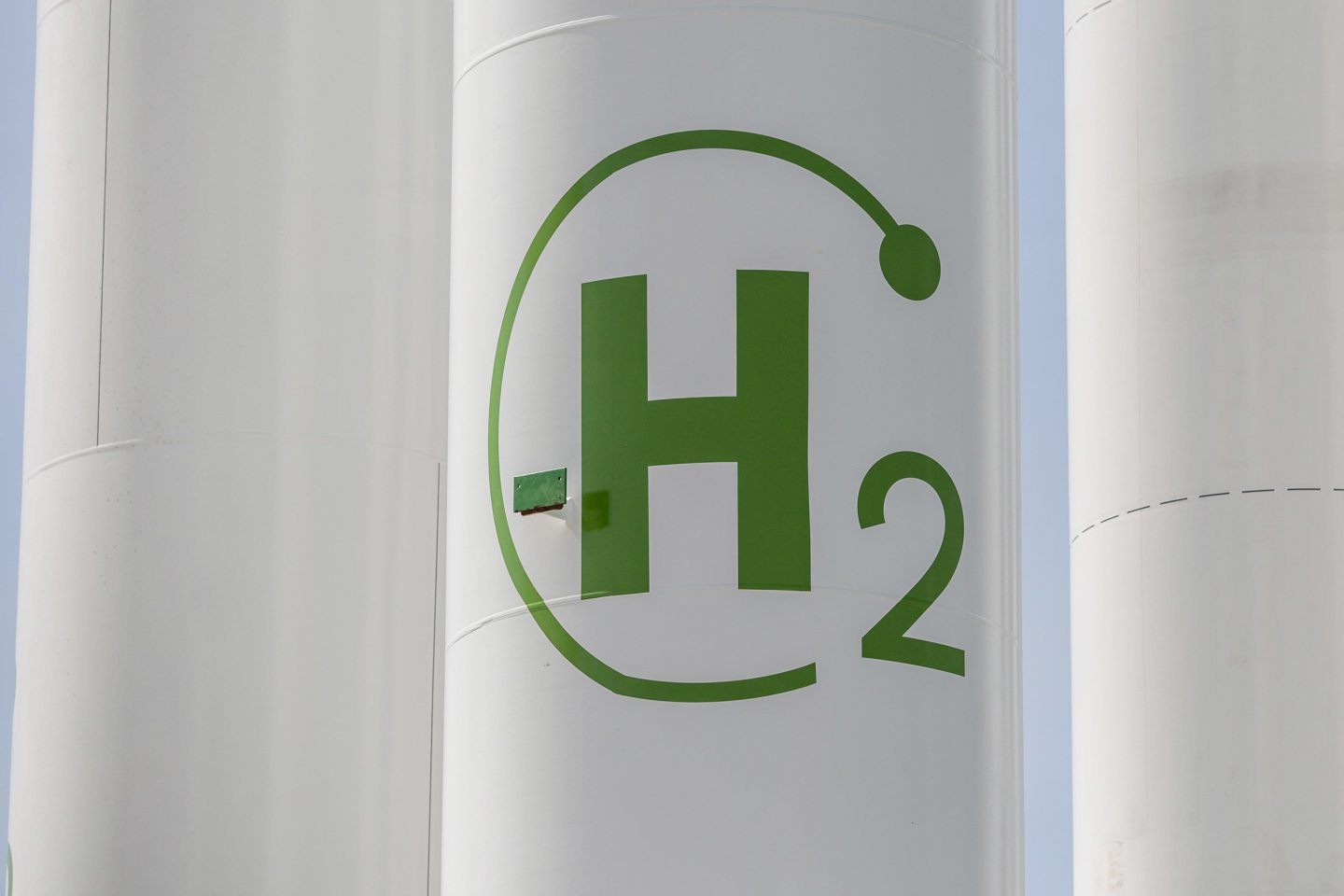 © Bloomberg
© Bloomberg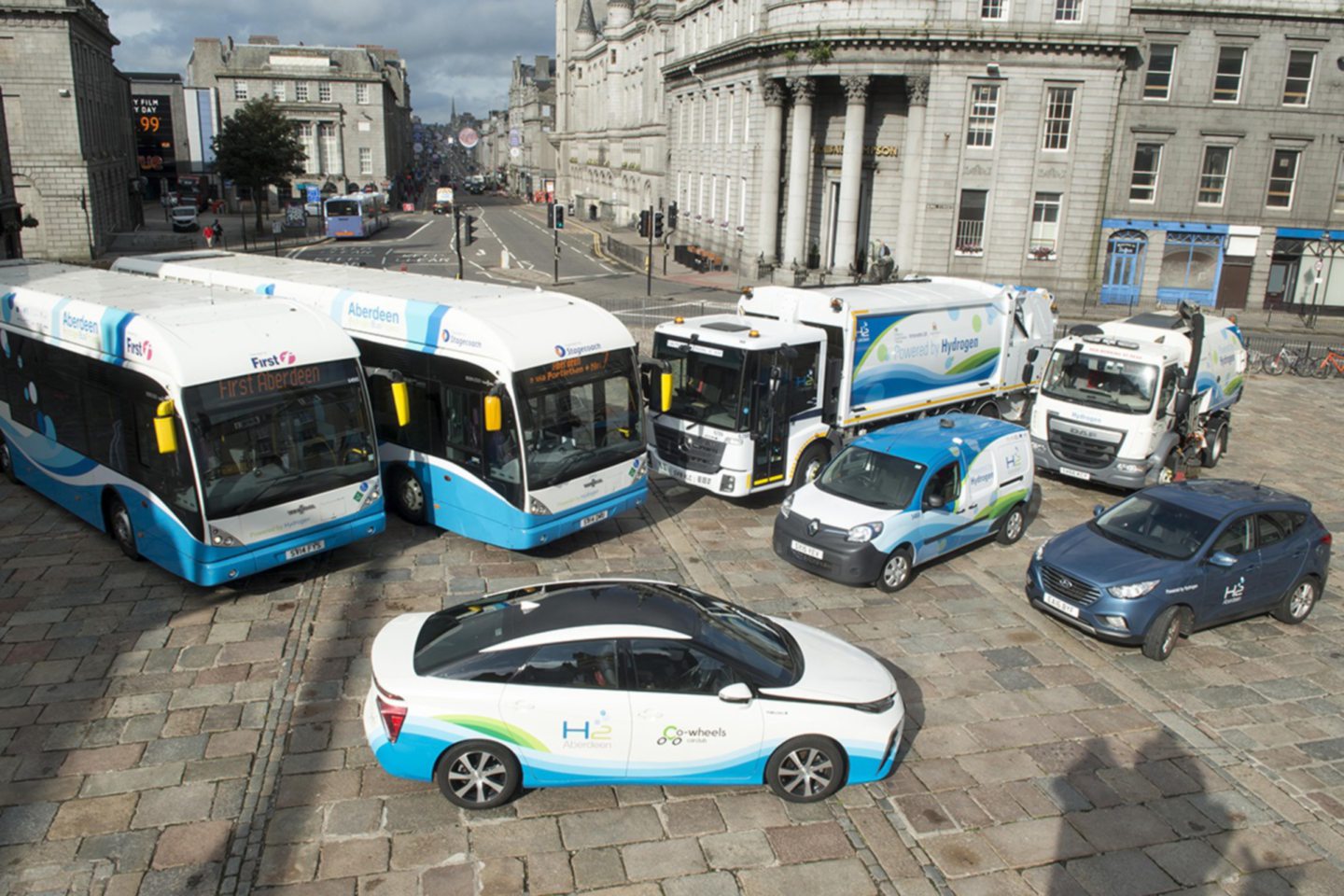 © Supplied by Sure Public Relation
© Supplied by Sure Public Relation © Pale Blue Dot
© Pale Blue Dot © Andrew Dykes/DCT Media
© Andrew Dykes/DCT Media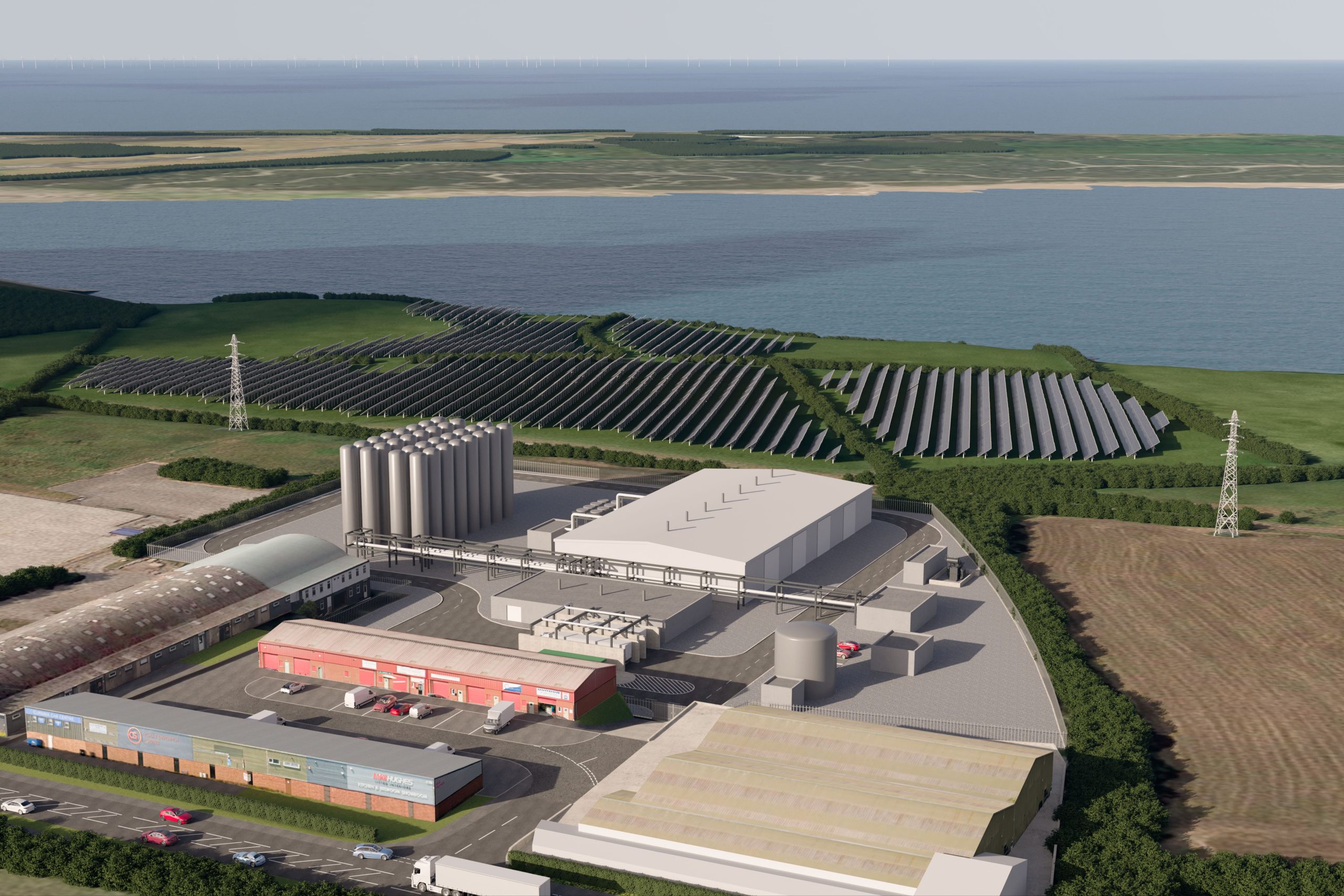 © Carlton Power
© Carlton Power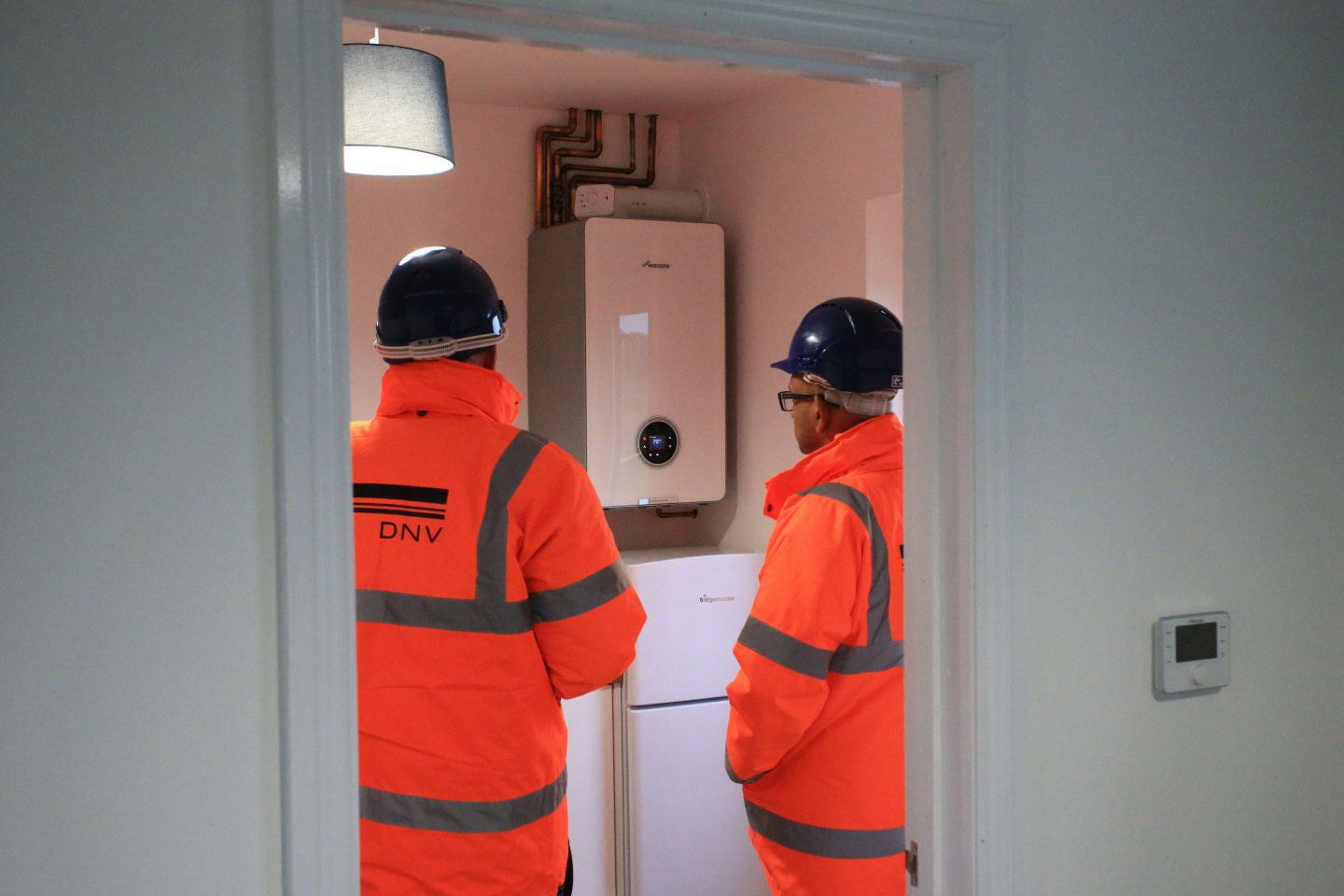 © Supplied by DNV
© Supplied by DNV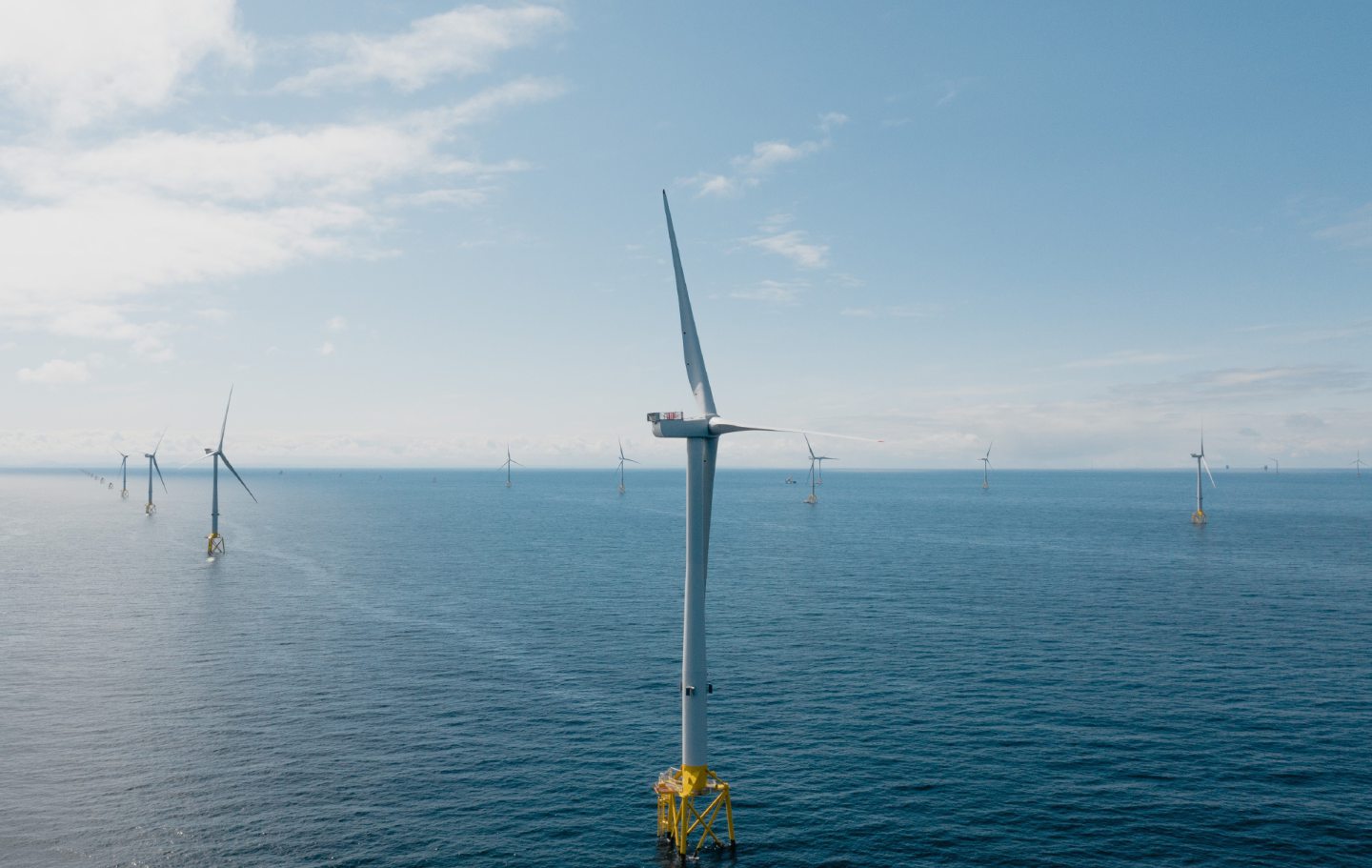 © Supplied by Ocean Winds
© Supplied by Ocean Winds © Steve Brown / DC Thomson
© Steve Brown / DC Thomson






